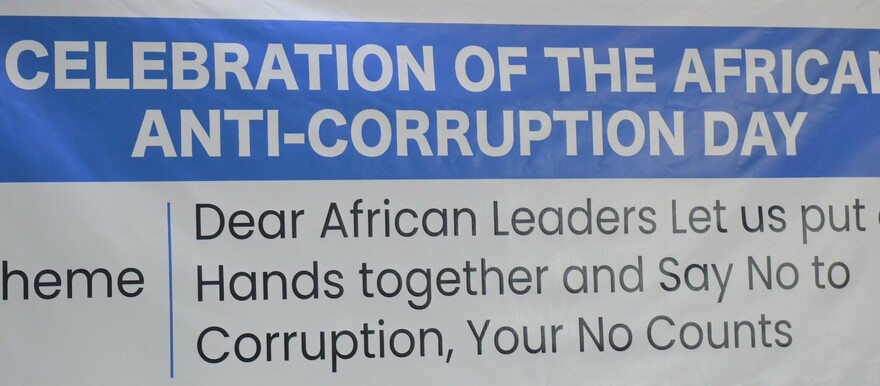As South Sudan joined African nations in commemorating African Anti-Corruption Day in the capital city of Juba on Tuesday, Nathaniel Oyet, the first deputy speaker of the Transitional National Legislative Assembly (TNLA), expressed concerns about the ongoing corruption perpetrated by government officials who claim to be liberators.
African Anti-Corruption Day marks the adoption of the African Union Convention on the Prevention and Combating of Corruption (AUCPCC) in Maputo, Mozambique, on July 11, 2023.
Oyet emphasized that South Sudan and many other African countries suffer from corruption due to liberation leaders who believe they are entitled to national resources after fighting for the country’s freedom. This entitlement mentality makes it difficult to prosecute government officials accused of embezzling public funds.
Oyet stated, “Post-colonial Africans have made numerous mistakes. Liberation movements in African societies led to bitter conflicts, and those who fought for their countries’ liberation attempted to become masters, controlling resources meant for the entire nation. This could be one cause of corruption.”
The first deputy speaker highlighted the sense of entitlement as a key driver of corruption in African countries, saying, “This is what Africans went through—a sense that you can reward yourself, that it this is our time because we fought for it. This is what leads some leaders to appropriate what rightfully belongs to others for their personal gain.”
Oyet lamented that South Sudan consistently ranks among the most corrupt countries, but he acknowledged that this issue extends beyond his nation’s borders, with similar attitudes prevailing elsewhere.
Oyet revealed that the difficulty in prosecuting corrupt ministers and senior leaders in the army in South Sudan stems from what he terms the “liberation proof.” He stressed the need for accountability among leaders found guilty of corruption to combat this pervasive issue effectively.
According to the High-Level Panel on Illicit Financial Flows from Africa, the continent loses over US$50 billion annually through illicit financial outflows.
To combat corruption in South Sudan, Oyet emphasized the necessity of holding corrupt leaders accountable for their actions. Meanwhile, South Sudan commemorated African Anti-Corruption Day under the theme, “Dear African Leaders, Let Us Unite and Say No to Corruption—Your Voice Matters, Today is the Day.”
Various African countries also observed the occasion with their unique themes. Kenya’s theme was “Consolidating Achievements of the African Convention Against Corruption,” Uganda focused on “African Union Convention on Preventing and Combating Corruption: 20 Years After—Achievements and Prospects,” and Zimbabwe marked the day as “AUCPCC: 20 Years After—Achievements and Prospects.”
Ngor Kolong Ngor, chairperson of the South Sudan Anti-Corruption Commission (SSACC), called for a collaborative effort among stakeholders, especially the government, to allocate more time and resources toward combating corruption. Ngor acknowledged that fighting corruption requires a multilateral approach involving civil society, media, and the people of South Sudan.
The SSACC chairperson highlighted the need for the passage of the anti-corruption bill and financial support from the government to establish the institution effectively. Ngor emphasized, “If the government supports us, we will fight corruption. Otherwise, we will not. Legal and financial support is crucial.”
Luwate Satimon, executive director of Integrity South Sudan, a civil society organization, pointed out that corruption has deprived South Sudanese citizens of basic services while individuals exploit resources meant for development. Luwate urged the enactment of the South Sudan anti-corruption bill and the ratification of the African Union Convention on Corruption to strengthen the SSACC.
“The most urgent action needed is the signing of the Anti-Corruption Bill into law, which has been pending for years. It can strengthen the legal and institutional framework for fighting corruption,” Luwate emphasized, further highlighting the importance of holding leaders accountable for their actions.




